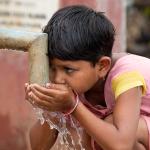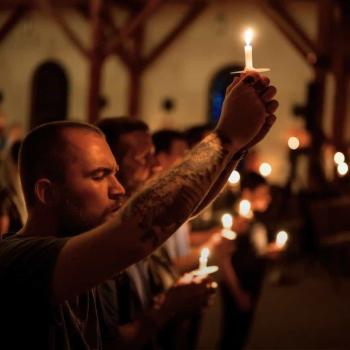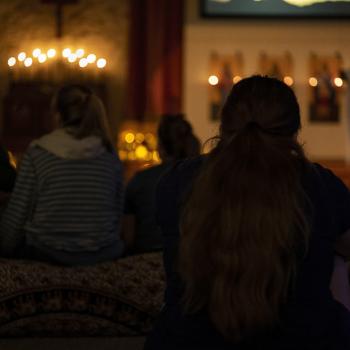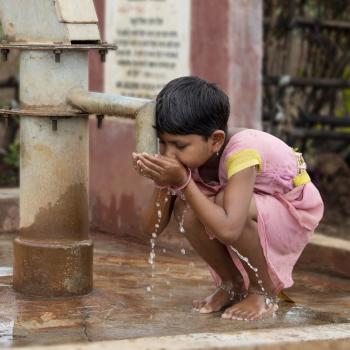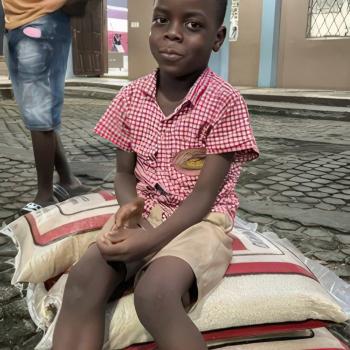WILLS POINT, TX – GFA World (Gospel for Asia) founded by K.P. Yohannan, whose heart to love and help the poor has inspired numerous charities like GFA World Canada, to serve the deprived and downcast worldwide, issued this third part of a Special Report update on girls facing decreased opportunity and increased violence, the young victims who remain hidden in the shadow of the COVID 19 pandemic.
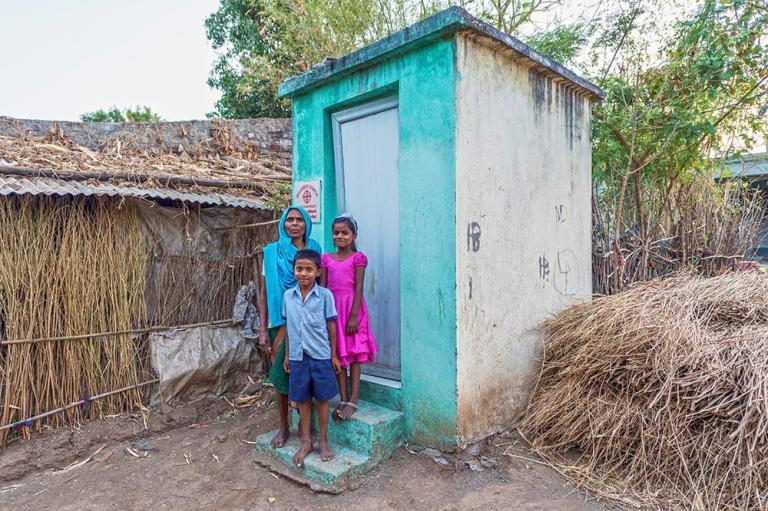
Fostering Safety and Education
While meeting the basic needs of girls, non-profits and communities and families must also work to value and protect girls and their education. Malala Fund is partnering with organizations and governments in several developing nations to promote digital learning, secure education funding for girls and ensure girls’ mental and physical well-being during school closures.[33]
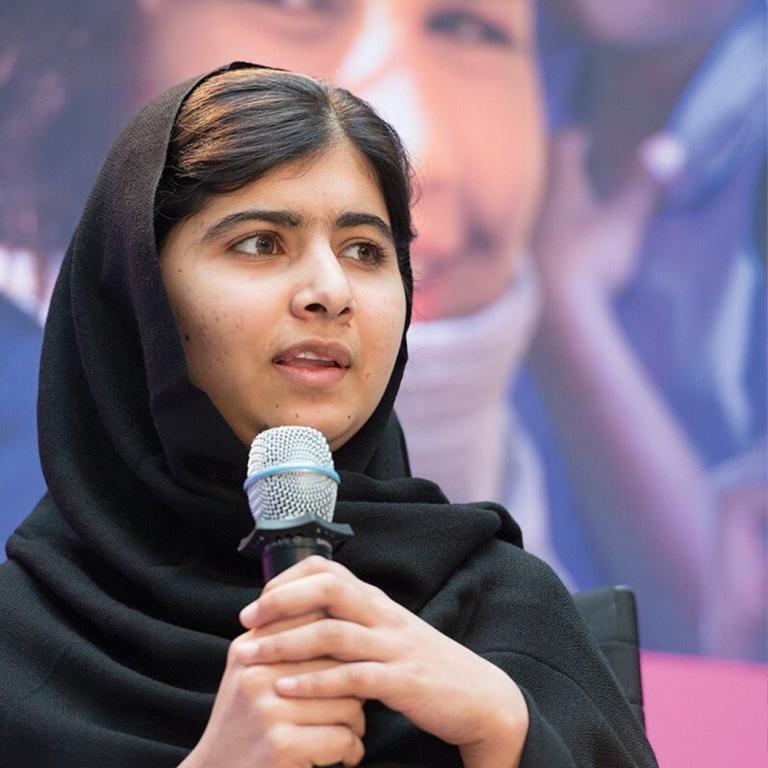
“Our goal should not be a return to the way things were but instead a renewed commitment to the way the world should be, a place where every girl can learn and lead.”[34]
Gospel for Asia (GFA) workers have encouraged communities to promote girls’ education, even during the pandemic. Last October, Gospel for Asia (GFA) workers in one community held a small International Day of the Girl celebration at the local church, where regional pastors and a Women’s Fellowship leader shared about the importance of valuing girls.
“Children are a gift from God; they are His reward,” explained the Women’s Fellowship leader, referencing Psalm 127.
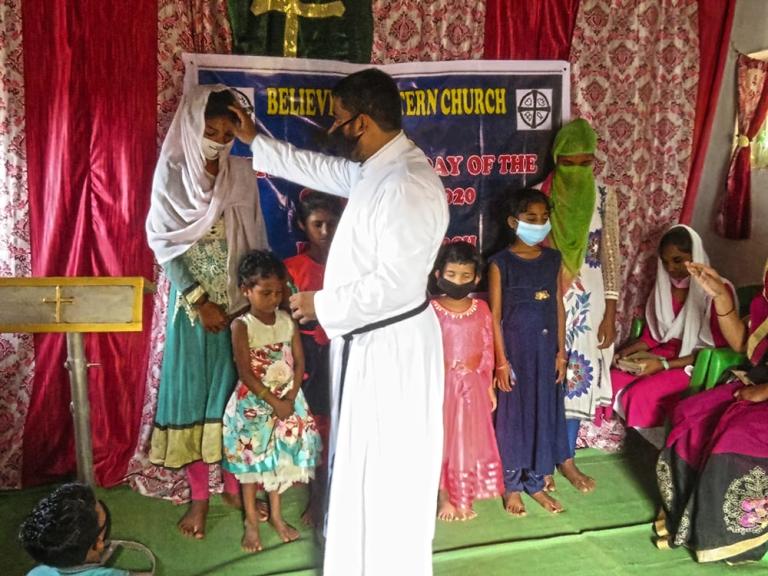
One of the pastors then prayed for each girl present while the other attendees lifted their hands toward the girls in a sign of agreement with his prayer of blessing. At the end of the program, the girls each received a pen and a chocolate bar.
These may seem like small gifts, but even small ways of showing respect for girls can impact a community.
“I acknowledged the fact that a girl child is a great blessing for the family, church and in our society, who must not be considered as a burden, rather an instrument for source of blessings,” said one woman present.
“A girl child must not be shown any partiality from her parents nor put down without knowing her potential. … She must be educated well and needs to be motivated,” shared a 15-year-old girl who attended.
As churches, non-profits and governments work together to help girls reach their potential, girls will most likely have safer communities. Parents who value their daughters will probably spend more time with them, engage them in conversation more often, and help them to develop healthy relationships. In countries where technology is available, this means parents will safeguard their daughters’ online experience.
As families and communities choose to embrace and educate their daughters, girls will face a lower risk of trafficking, violence and abuse.
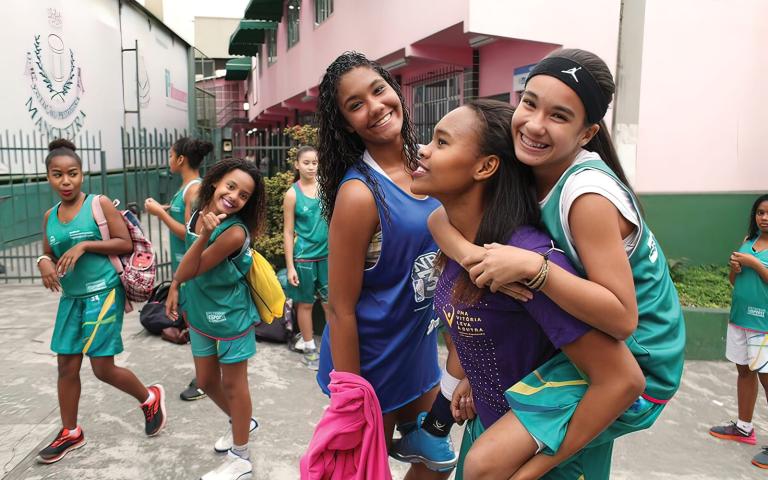
Fighting Injustice
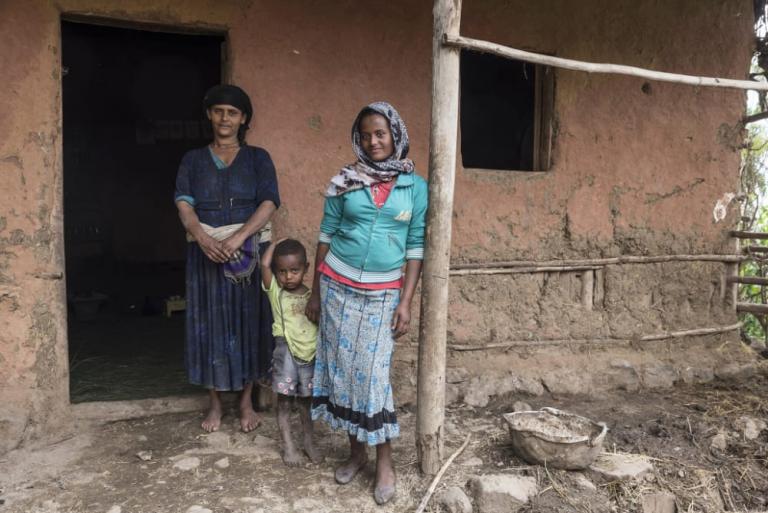
While creating safe environments for girls is key, organizations and governments must also work together to end child marriage and trafficking and provide justice and care to girls who have already been victimized.
In 134 countries, child marriage (marriage where at least one partner is under age 18) can happen if a parent, judge or authority consents.[35] In the United States, several states allow for child marriage if a parent consents. North Carolina and Alaska allow a girl to be married at 14 if she is pregnant.[36] In 2002, North Carolina received a marriage application from a 57-year-old wanting to marry a 17-year-old.[37] Because of exceptions in the law, a teenage girl may be pressured or even forced into marriage by her parents or others, so advocates suggest that governments should keep the marriage age at 18—with no exceptions.[38]
Calling on governments to remove exceptions to the legal marriage age can protect girls from experiencing statutory rape and/or being forced to marry someone who may have abused them. It can help these girls grow up with a better chance of finishing school and choosing a partner when they are old enough to know what is right for them.
The Dominican Republic reached a milestone this year in the fight against child marriage: On January 6, the nation’s president approved a bill removing any grounds for child marriage.[39] Now that marriage is prohibited for anyone under age 18 in the Dominican Republic, girls there will be less vulnerable to human trafficking and abuse.

Meanwhile, despite the pandemic, organizations such as International Justice Mission, Freedom Firm and Exodus Cry have continued their work to rescue girls (and other victims) from trafficking, bring justice to traffickers and provide care to survivors.
One victory in the fight against trafficking occurred in the success of the Traffickinghub campaign, which has been shining a light on the prevalence of the abuse of women and children found on the website Pornhub.[40] The Traffickinghub campaign, along with a New York Times editorial by Nicholas Kristof, drew attention to this and eventually encouraged government leaders and businesses to investigate allegations that Pornhub was profiting from child pornography and rape.[41] Eventually, Visa, Mastercard and Discover refused to process transactions on the site, and Pornhub had to remove nearly 80 percent of its videos. Meanwhile, senators have introduced two bills in Congress to help protect women and girls from pornography being posted online without their consent; one bill makes it easy for victims to sue platforms like Pornhub, and another requires such platforms to provide proof of age and consent for the individuals appearing in videos.[42]
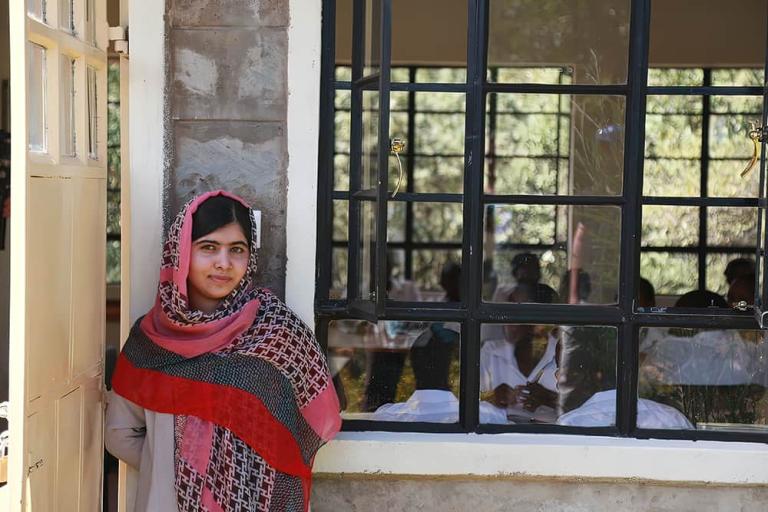
A New Beginning

Serena, one of the women interviewed by Kristof, was 14 when a classmate asked her to send him a naked video of herself. She did, and he posted it on Pornhub without her consent. As classmates mocked her for it, she fell down a spiral of shame, suicide attempts and drug addiction.[43]
“A whole life can be changed because of one little mistake,” she told Kristof.[44]
Making mistakes is a normal part of a child’s development. But for girls, the cost of a “mistake” is often too high. Trusting someone who turns out to be untrustworthy or failing to stay safe online could entrap a girl in years of abuse and exploitation. For some girls, lacking a strong family or support system simply endangers them, apart from any decisions they have made. Girls’ risks are increasing, whether they are making “mistakes” or not.
For Alexis Martin, one mistake was trusting a man who ended up trafficking her.[45] Now, although life on parole has its hardships, she is free from trafficking and free from prison. She has been living with a mentor and working to save money, buy a car and attend college. She now goes by Kee, a shortened version of her middle name, to remind herself that she is a new person.[46]
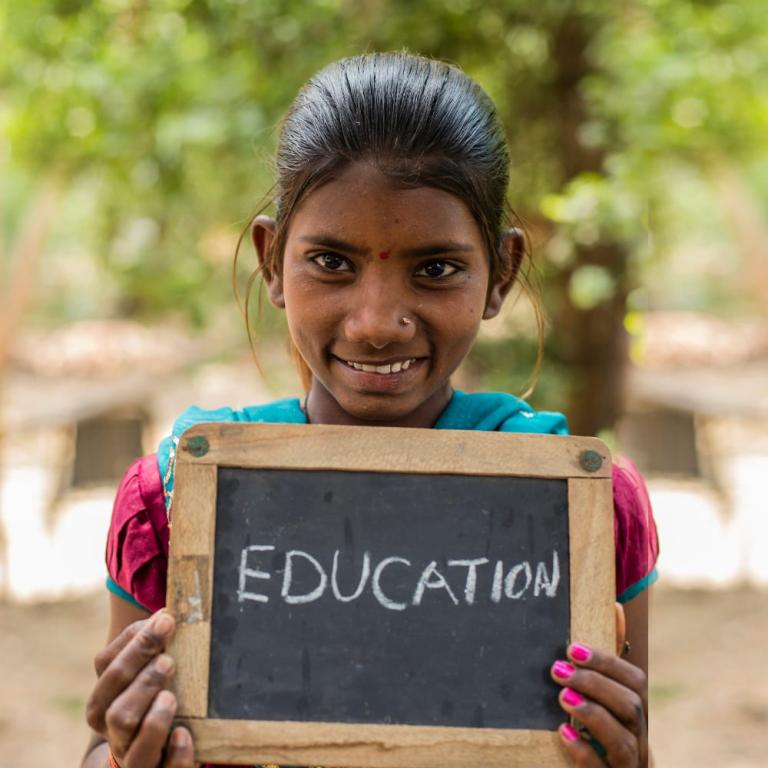
For girls, a single mistake—or a single experience of abuse—can yield years of pain or injustice. COVID-19 has been making their lives more difficult and more dangerous. Months of poverty, neglect and violence have the potential to derail girls’ futures. Like Alexis, girls who have endured trauma can gain a fresh start, but they will need support, advocacy and help to break the grip of destructive forces on their lives. That’s why it’s more vital than ever to provide girls with safe, nurturing environments and to bring justice and aid to those who’ve been abused.
There is much work to be done, but organizations, communities and governments can work together to equip girls with education; protect them from trafficking, child marriage and violence; and help girls who have been exploited find restoration. The COVID-19 pandemic will have years of consequences, but with God’s help, we can prevent it from destroying girls’ lives. We can witness a new beginning.
If you want to support girls in South Asia and Africa, consider a one-time donation to help young victims who have been delivered from desperate situations in their lives, but are still struggling everyday. Your gift will provide for their pressing needs, while we locate permanent sponsors to cover their monthly needs to remain in school.
Read the rest of this Gospel for Asia – Transforming Communities (GFA World) Special Report: Young Victims Remain Hidden in Pandemic’s Shadow — Part 1, Part 2
About GFA World
Gospel for Asia (GFA World) is a leading faith-based global mission agency, helping national workers bring vital assistance and spiritual hope to millions across the world, especially in Asia and Africa, and sharing the love of God. In GFA World’s latest yearly report, this included thousands of community development projects that benefit downtrodden families and their children, free medical camps conducted in more than 1,200 villages and remote communities, over 4,800 clean water wells drilled, over 12,000 water filters installed, income-generating Christmas gifts for more than 260,000 needy families, and teaching providing hope and encouragement available in 110 languages in 14 nations through radio ministry. GFA World has launched programs in Africa, starting with compassion projects in Rwanda. For all the latest news, visit our Press Room at https://gfanews.org/news/.
Read more blogs on GFA World, National Missionary Workers, World Missions and the COVID 19 Pandemic on Patheos from Gospel for Asia.
GFA’s Statement About Coronavirus
Learn more by reading this Special Report from Gospel for Asia on the Lord’s work in 2020 through GFA and the partnerships worldwide while following Him in His work in 16 nations, including Sri Lanka, Bangladesh and Nepal.
Learn more about Gospel for Asia: Facebook | YouTube | Instagram | LinkedIn | SourceWatch | Integrity | Lawsuit Update | 5 Distinctives | 6 Remarkable Facts | 10 Milestones | Media Room | Widows & Coronavirus | Endorsements | 40th Anniversary | Lawsuit Response | International Offices | Missionary and Child Sponsorship | Transforming Communities through God’s Love
Notable News about Gospel for Asia: FoxNews, ChristianPost, NYPost, MissionsBox
Read what 25 Christian Leaders are affirming about GFA World.
This Special Report originally appeared on gfa.org.


